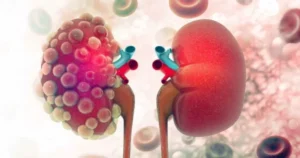Chronic kidney disease is a devastating disorder that affects millions of people all over the world. When the kidneys are injured, they are unable to function effectively, which is essential for preserving the balance of fluids and electrolytes in the body as well as filtering waste from the blood. Detection and treatment at an early stage are absolutely necessary in order to forestall future damage and consequences. The good news is that your body will attempt to alert you to the possibility that there is a problem with your kidneys. Become familiar with these symptoms and seek medical assistance as soon as possible.

Acquiring Knowledge of the Functions of the Kidneys
Two little organs that are shaped like beans and are positioned on either side of the spine, just below the ribcage, are known as the kidneys. They help to control blood pressure, produce red blood cells, and maintain the balance of electrolytes such as sodium, potassium, and calcium. They filter blood, removing waste products and excess fluids, controlling blood pressure, and producing red blood cells. On a daily basis, kidneys that are in good health filter approximately 120 to 150 quarts of blood and produce approximately 1 to 2 quarts of urine.
Explain what kidney disease is.

Kidney disease, also known as renal disease, is a condition that develops when the kidneys get damaged to the point where they are unable to operate at their ideal level. High blood pressure, diabetes, infections, autoimmune illnesses, and hereditary factors are all of the causes that might cause this condition. It is possible for kidney disease to progress to renal failure if it is not treated, which would necessitate either dialysis or a kidney transplant. In order to effectively manage the situation and prevent future damage, early diagnosis is absolutely necessary.
Indications of a Kidney Disease
A significant number of individuals do not develop renal disease until it has progressed to a more severe stage. On the other hand, the body does demonstrate early warning indications. Here is a list of ten indications that your kidneys may be experiencing problems:
1.The Alterations in Urination
An increase in frequency, particularly during the night
A decrease in urination or urine that is frothy
2.Both exhaustion and weakness
The chronic weariness and difficulties concentrating that are symptoms of anemia brought on by renal disease in patients
3.a swelling,
The accumulation of fluid, also known as edema, which causes swelling in the legs, hands, face, and abdomen
4.Unrelenting pain in the back
Extreme pain that is located below the ribcage, frequently accompanied by tenderness, and is typically associated with urinary tract infections that have not been treated.
5.Unexplained A decrease in appetite or a loss of weight
The accumulation of waste in the body causes a decrease in appetite as well as weight loss.
6.Symptoms of nausea and vomiting
experiencing feelings of nausea and vomiting, particularly in the morning or after meals, and especially in the morning
7.Difficulty level Taking a nap
Having trouble sleeping as a result of muscle cramps during the night, restless leg syndrome, or the need to urinate frequently
8.Metal-based A Distinction in the Mouth
a taste that is persistently metallic, caused by the accumulation of waste products in the blood
9.Twitching and cramping in the muscles
An imbalance of electrolytes that results in cramping and twitching of the muscles
10.Itchy Skin
Itching that is widespread and caused by the accumulation of toxins in the blood
These symptoms can vary depending on the stage and severity of kidney disease. If you notice any of these signs, consult a healthcare professional for further evaluation and appropriate management. Early intervention can make a significant difference in the treatment and outcome of kidney disease.
